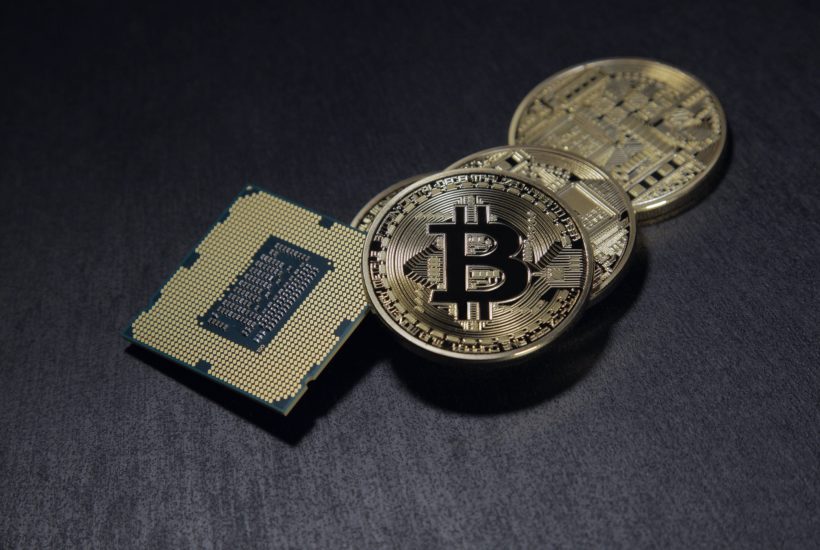Crypto
Fidelity granted license to offer crypto services by NY regulator
Fidelity has obtained a trust license from the NY Department of Financial Services to offer its Bitcoin custody service to NY residents. Additionally, Fidelity also received a license to operate a trading platform on which New York’s institutional investors can securely purchase, sell, store or transfer Bitcoin. The decision boosts efforts to woo institutional investors into crypto assets.

Fidelity has been granted a trust license to offer crypto services (trading and custody of bitcoin) to institutional investors based in New York. The license was granted by the New York State Department of Financial Services, as the asset management group continues to woo cautious institutional investors into the “Wild West” of digital assets.
If you’re in a rush the Born2Invest business news mobile app helps you digest the crypto news summaries in small digestible chunks, helping you be up to date with the newest information in this field. Our team of experts puts the most important cryptocurrencies news at your fingertips.
Fidelity playing a leading role in supporting the maturation of the Bitcoin ecosystem
The US asset manager Fidelity, through its subsidiary Fidelity Digital Assets, has obtained the green light from New York regulators to offer crypto (trading and custody) services to institutional investors based in New York State. The American asset manager was already operating in the United States and mainly claimed crypto funds or hedge funds as clients. With this license, the American manager hopes to reassure more traditional institutional investors (family offices, investment funds, etc.).
Fidelity is not the only one in this segment. More and more recognized financial institutions are entering the world of bitcoin as the Intercontinental Exchange, the parent company of the NYSE, with its Bakkt platform. Several large crypto exchanges such as Coinbase are also aimed at institutional investors. Tom Jessop, President of Fidelity Digital Assets, said that other cryptocurrencies will be available (in addition to bitcoin and ether) in 2020 and that “opportunities abroad” are being considered.
Bitcoin definition
Bitcoin is a virtual currency created in 2009 by an unidentified person whose nickname is Satoshi Nakamoto. Unlike traditional currencies (also called fiat currencies), bitcoin is not issued and administered by a banking authority. It is issued on the Blockchain protocol of the same name. This technology allows information to be stored and transmitted transparently, securely and without a central control body.
Bitcoin, like many other cryptocurrencies, is put into circulation via mining. The “miners”, people all over the world, perform mathematical calculations with their computer equipment for the Bitcoin network to confirm transactions and increase their security. In exchange, they receive Bitcoins. They can then be converted into fiat currency or exchanged for other cryptocurrencies on exchange platforms.
The emission of bitcoins is limited to 21 million units, as provided for in the original code. At the beginning of 2018, the number of bitcoins issued exceeded 17 million, or 80% of the total. Due to the difficulty of growing calculations, bitcoin is created at a decreasing rate: 12.5 bitcoins every ten minutes today (compared to 50 bitcoins in 2009). Note that the smallest division of the bitcoin is the satoshi. 1 satoshi = 0.0000000001 bitcoin.
Bitcoin price
There is no official value for Bitcoin. This indicator is only an average of bitcoin prices (usually in dollars) on all cryptocurrency trading platforms in the world. There are several sites that use this method, the most famous of which is CoinmarketCap. The price of bitcoin is determined by the law of supply and demand. On 1 November 2019, the Bitcoin price was $9,161 (€8,270).
Since its inception, the price of Bitcoin has fluctuated widely. The year 2017 was a particularly eventful one for the star of crypto-currencies. After exceeding the $1,000 mark in early 2017 and gradually increasing over several months, its price reached an all-time high in December 2017, $19,000 and soon after it collapsed and continued to decline gradually in the first half of 2018 to about $6,500.
How to buy Bitcoins?
Before buying Bitcoins, it is important to keep in mind that you should not invest more than you can afford to lose. To get Bitcoins, you must open an account on a cryptocurrency exchange platform. In general, it is possible to buy them by card or bank transfer. In France, there are a handful of players: Paymium exchanges (bitcoin/euro exchange), Zebitex (multi-crypto/euros), Savitar and the brokers Coinhouse and ZeBitcoin.
Bitcoins can typically only be purchased on an exchange. Some are easier to use than others. than others. Commissions also vary from one platform to another. The bitcoin.fr website regularly updates a ranking of platforms, listing, in particular, the number of positive and negative opinions.
__
(Featured image by BenjaminNelan via Pixabay)
DISCLAIMER: This article was written by a third party contributor and does not reflect the opinion of Born2Invest, its management, staff or its associates. Please review our disclaimer for more information.
This article may include forward-looking statements. These forward-looking statements generally are identified by the words “believe,” “project,” “estimate,” “become,” “plan,” “will,” and similar expressions. These forward-looking statements involve known and unknown risks as well as uncertainties, including those discussed in the following cautionary statements and elsewhere in this article and on this site. Although the Company may believe that its expectations are based on reasonable assumptions, the actual results that the Company may achieve may differ materially from any forward-looking statements, which reflect the opinions of the management of the Company only as of the date hereof. Additionally, please make sure to read these important disclosures.
First published in JDN, a third-party contributor translated and adapted the article from the original. In case of discrepancy, the original will prevail.
Although we made reasonable efforts to provide accurate translations, some parts may be incorrect. Born2Invest assumes no responsibility for errors, omissions or ambiguities in the translations provided on this website. Any person or entity relying on translated content does so at their own risk. Born2Invest is not responsible for losses caused by such reliance on the accuracy or reliability of translated information. If you wish to report an error or inaccuracy in the translation, we encourage you to contact us.

-

 Biotech1 week ago
Biotech1 week agoVytrus Biotech Marks Historic 2024 with Sustainability Milestones and 35% Revenue Growth
-

 Crypto3 days ago
Crypto3 days agoRipple Launches EVM Sidechain to Boost XRP in DeFi
-

 Africa1 week ago
Africa1 week agoCôte d’Ivoire Unveils Ambitious Plan to Triple Oil Output and Double Gas Production by 2030
-

 Business1 week ago
Business1 week agoThe TopRanked.io Weekly Digest: What’s Hot in Affiliate Marketing [NordVPN Affiliate Program Review]




















